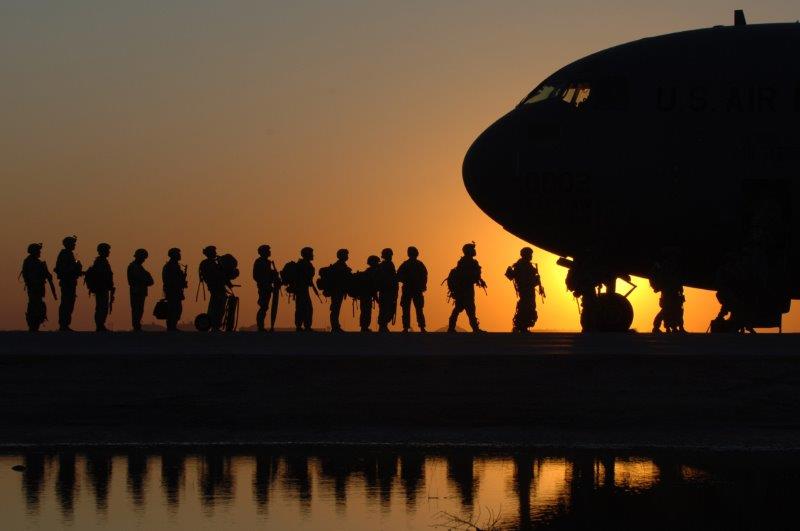Utility linemen provide an invaluable service by keeping the power on and restoring electricity after outages. But are lineman first responders? There's an ongoing debate about whether these hardworking professionals should be classified as "first responders" along with police, firefighters, and EMTs.
In this in-depth article, we'll examine both sides of the argument and look at the risks linemen face, why recognition matters, and what needs to happen for their first responder status to change.
Key Takeaways:
- Linemen play a critical role in emergency response after storms and disasters to repair damaged infrastructure and restore power.
- However, some argue linemen are skilled tradespeople doing a job, not necessarily "saving lives" like traditional first responders.
- Efforts are underway to legally recognize linemen as first responders, but they face obstacles and opposition.
- There are good-faith arguments on both sides of the debate that warrant further discussion.
The Vital Role of Linemen in Storm and Disaster Response

Utility linemen, also known as line workers, are essential in maintaining and repairing utility lines, ensuring the continuous flow of electricity across communities. However, the current definition of first responders under the Homeland Security Act of 2002 does not include utility linemen. This exclusion has sparked a debate about whether linemen should be recognized as first responders
When catastrophic storms like hurricanes strike or disasters damage critical infrastructure, linemen are called upon to enter high-risk situations and work extended hours to assess damage and restore electricity service.
After Hurricane Ida battered Louisiana in 2021, over 25,000 linemen from 41 states rushed in for emergency response efforts. They faced flooding, washed out roads, intense heat, and live wires while working 16 hour days. Their skilled efforts getting power back on were credited with saving lives.
Did You Know: During major power outage events like hurricanes or ice storms, electrical utilities and contractors can mobilize a "lineworker army" of thousands of workers from across multiple states and regions to help with restoration efforts. For example, after Hurricane Ida battered Louisiana in 2021, over 27,000 lineworkers were brought in from 41 different states to help Entergy and other utilities rebuild damaged infrastructure and restore power.
Lineman also faced perilous ice storm conditions in Texas in early 2022. Over 200 workers came from across the country to join local linemen, facing severe ice accumulation on power lines and equipment. Their tireless work in frigid temperatures was the only way to restore electricity to over 3 million customers, including vital facilities.
These stories illustrate how linemen are truly on the front lines when crisis strikes. They brave significant risks and challenges to provide this critical service. Next we'll explore in more detail the arguments for recognizing linemen as first responders.
The Case for Recognizing Linemen as First Responders

They Save Lives and Homes
While not directly performing medical rescue operations, utility lineworkers absolutely save lives when they restore power after a disaster. Getting the lights back on in homes and hospitals prevents secondary health risks from carbon monoxide poisoning, hypothermia, loss of refrigeration for medications, and more. Linemen also prevent property damage by restarting climate control systems.
They Work grueling conditions with inadequate support
Linemen consistently work 16+ hours a day in dangerous storm aftermath environments. Besides the obvious electrical hazards, they face risks from falling debris, flooded areas, traffic accidents, and more. The physical and mental fatigue takes a toll. Unlike other emergency responders, linemen are not always given high priority access to disaster areas or support services.
Recognition would facilitate emergency response
The Lineman Legacy Act proposed in Congress aims to legally designate lineworkers as "emergency response providers" under Homeland Security. This would give linemen better ability to access damaged areas quickly, coordinate with other first responders, and provide needed documentation.
Strong advocacy from Industry Groups
Major industry associations like the Edison Electric Institute, American Public Power Association, and National Rural Electric Cooperative Association are strongly urging Congress to pass legislation giving linemen official first responder recognition. These groups argue it's overdue acknowledgement of the vital and dangerous work lineworkers perform during emergencies.
Against First Responder Status for Linemen

It Blurs Job Role Boundaries
Some argue that expanding first responder designations to new categories like linemen diminishes the meaning and blurs roles. Police, fire, EMTs, and other recognized first responders have very specific lifesaving responsibilities that linemen are not trained for.
Electrical Utilities Have Obligation to Customers
Maintaining infrastructure and restoring power outages is already the job and obligation of electric utilities. So some argue linemen don't require special first responder status to do the work they are hired for.
Potential Costs and Taxpayer Burdens
There are concerns that designating linemen as first responders could eventually impose regulatory requirements or taxpayer funded burdens like specialized training, benefits, insurance, and pensions reserved for emergency response personnel.
The Linemen Legacy Act: A Push for Inclusion

In an attempt to recognize the invaluable contributions of linemen, Senator John Kennedy has introduced the Linemen Legacy Act, which aims to revise the definition of first responders under the Department of Homeland Security's jurisdiction to include linemen and utility line technicians. This legislation seeks to acknowledge that lineman are first responder and play a significant role in emergency response situations and grant them the recognition they deserve.
Utility linemen and line technicians are often the first on the scene after a disaster, working tirelessly to repair and restore power lines. Their efforts are vital in ensuring the safety and well-being of communities, as power restoration is crucial for essential services like hospitals, nursing homes, and emergency response facilities. The Linemen Legacy Act recognizes the critical nature of their work and seeks to provide them with the status of first responders, aligning their recognition with their invaluable contributions.
"Linemen play a crucial role in our communities, often venturing into dangerous situations and working long hours to restore power. It is time we recognize them as the heroes they are and provide them with the recognition and support they deserve" - Senator John Kennedy
The introduction of the Linemen Legacy Act has sparked a national discussion on the recognition of linemen as first responders. Supporters argue that linemen undergo extensive training and work in hazardous conditions, often risking their lives to restore power. They contend that these actions place linemen in the category of first responders, as they directly contribute to saving lives and ensuring public safety during emergencies.
However, there are those who oppose the inclusion of linemen as first responders. They argue that first responders should be solely defined as those who respond to immediate life-threatening situations and save lives. They also contend that linemen are already well-compensated for their work and do not encounter the same level of danger as traditional first responders. This viewpoint highlights the need for further evaluation and discussion to determine the criteria for granting first-responder status.
The Outlook to Include Utility Linemen as First Responders
Despite bipartisan political support and strong advocacy from electrical industry groups, the Lineman Legacy Act or similar legislation to formally recognize linemen as first responders still faces hurdles.
Opposition from some emergency response organizations, fiscal policy groups, and local utility companies has slowed progress. However, supporters argue this opposition stems from misunderstandings rather than valid concerns.
Realistically, linemen are unlikely to gain full first responder status overnight after years of precedent. A more plausible scenario is the creation of new emergency response sub-categories for "lifeline workers" like linemen, gas/water utilities, and telecom workers that clarify their roles.
| Pros | Cons |
|---|---|
| Linemen play a crucial role in restoring power after natural disasters, saving lives in critical facilities. | Linemen are already well-compensated for their job and do not directly encounter life-threatening situations. |
| Linemen undergo extensive training and work in dangerous conditions to repair and restore utility lines. | Traditional first responders focus on immediate life-saving actions, while linemen primarily focus on restoring power. |
| Recognizing linemen as first responders would provide them with the recognition they deserve. | The definition of first responders may need further evaluation and clarification. |
Conclusion: Linemen Deserve More Recognition and Support
The debate over linemen and first responder status raises important discussions. There are good-faith arguments on both sides worth sorting through. However, one thing is clear - utility lineworkers absolutely perform a vital public service in crisis response.
Whether it comes through new laws, regulatory changes, or even just public education on their role, linemen deserve more recognition and support for the dangerous work they take on to restore essential services when lives are on the line.
In the end, the debate should transcend politics, rhetoric, and turf wars. Finding the right way to provide linemen with better support, resources, training, and coordination with other first responders will strengthen emergency response capabilities across the board.
This will ultimately help protect more lives and property when future disasters inevitably strike. That goal is something all stakeholders can agree on, regardless of where they stand on the first responder designation specifically.

FAQ: Are Lineman First Responders
Are linemen currently classified as first responders?
No, linemen are not currently designated as official "first responders" by federal, state, or local laws. The Lineman Legacy Act aims to change that.
What are the main benefits if linemen became first responders?
Key benefits would include priority disaster access, ability to coordinate with police/fire/EMTs, proper identification, and access to support resources.
Don't linemen already get paid well for their skilled work?
Yes linemen earn good wages given their skills and risk. But compensation is not the main factor in the first responder debate - it's about respect, recognition, and support.
Would special pension or retirement benefits come with first responder status?
Not necessarily - the Lineman Legacy Act does not specify or propose any changes to retirement or pension programs.
Are other utility/infrastructure workers also seeking first responder status?
Yes - gas, water, telecom, and other "lifeline" workforce groups are interested in similar recognition and support as emergency response providers.
Is there strong evidence that designating linemen as first responders would save lives?
Advocates point to analysis showing quicker power restoration during disasters prevents secondary fatalities from carbon monoxide, hypothermia and other risks.
Don't electric companies have an obligation to respond to outages already?
They do - but first responder recognition would give linemen better tools and coordination with other emergency providers to improve response capabilities.
Doesn't this diminish the role of police, fire, EMTs and other first responders?
Some argue it does "dilute" first responder roles. Others counter that linemen have a clearly distinct response role that warrants recognition. There are good arguments from both perspectives.
Are there potential downsides like costs or regulatory burdens?
Some are concerned about added costs and regulations. However, the proposed legislation does not mandate specific new requirements. Many believe these concerns are overstated.
Does the Lineman Legacy Act have bipartisan political support?
Yes, it has sponsors from both parties. But it still faces opposition and obstacles to garner wider support needed to pass. Its future prospects remain uncertain.
That concludes our in-depth look at the debate around whether linemen should get legal status as first responders. While views differ, hopefully this breakdown provides some useful facts and analysis to better understand this complex issue.
Why does Senator Kennedy believe utility line technicians should be included in the definition of "emergency response providers"?
The Homeland Security Act of 2002 grants first-responder status to many occupations but currently does not include utility linemen. Senator Kennedy believes utility linemen deserve recognition after seeing their work firsthand repairing Louisiana's electrical grid and being "first on the scene" restoring power after major hurricanes like Laura and Delta hit. He hopes to move this bill forward to include utility linemen as they often make neighborhoods safe again after storms.











